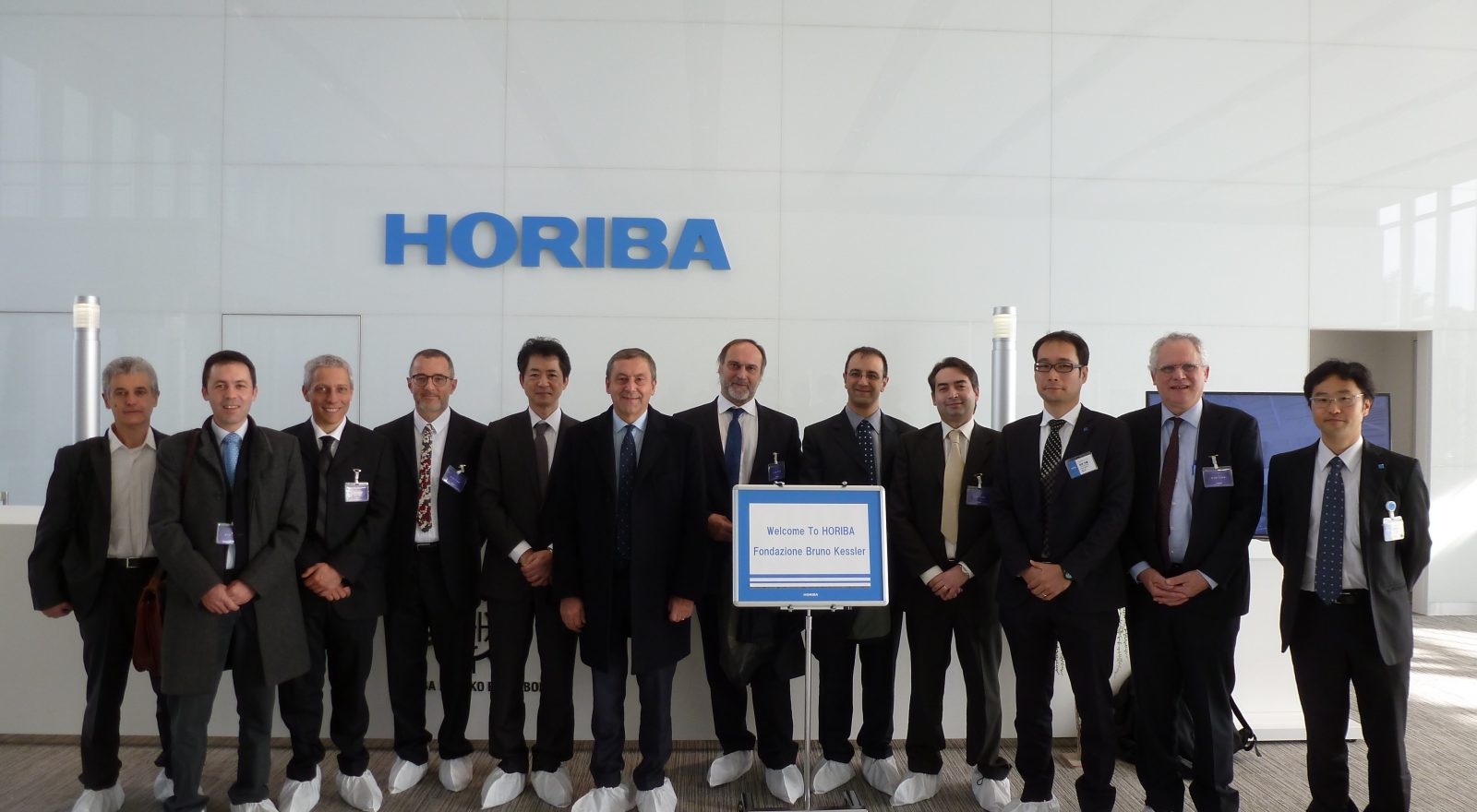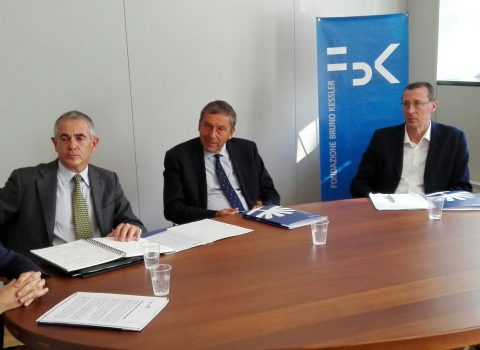Japanese leading company chooses FBK to develop their innovative sensors
The agreement for two more years of collaboration between HORIBA and the Trento-based research center was signed in Kyoto.
(v.l.) The cooperation agreement between Trento-based Fondazione Bruno Kessler and HORIBA, an International Japanese company, a world leader in the chemical analysis sector for several industrial segments including the automotive, biomedical and environmental monitoring, has been renewed for two other years
The collaboration, which began eight years ago and was renewed on December 12 in Kyoto, arose from HORIBA’s need to find a partner able to design and produce next-generation sensors to be integrated in their products. Globally, the Japanese company has identified the required standards of quality, reliability and ability to produce sets of components in the Trentino research center that develops innovative sensors thanks to the activities of its Materials and Microsystems Center Units in the MNF (Nano Micro Facility) laboratories led by Pierluigi Bellutti.
Fondazione Bruno Kessler’s President, Francesco Profumo , expressed his satisfaction: “With the renewal of the agreement for two more years with the Japanese company HORIBA for the design and production of new generation sensors to be integrated in some of the company’s new products made in Japan and developed with joint FBK-HORIBA intellectual property, Fondazione Bruno Kessler proves to be a research center with a reputation that now extends beyond Europe’s borders. During my visit to the HORIBA facilities and Research Center, I also met the company’s President, Atsushi Horiba, in Kyoto. He confirmed the great interest of his company to further develop their collaboration with FBK, which has grown stronger over the years, thanks to the value of our researchers in the Center for Materials and Microsystems, coordinated by Pierluigi Bellutti. During our meeting, we identified the possibility of further development of cooperation for the manufacturing of new types of sensors to be used in industrial equipment for the automotive, biomedical and environmental monitoring industries , and I invited Atsushi Horiba to visit Trento and the FBK facilities in 2017 to evaluate the possibility of a HORIBA settlement in our area”.
“The cooperation with Japan”, emphasizes Pierluigi bellutti , “has been so virtuous that it is still ongoing and has been renewed. The signed contracts include a technology transfer stage aimed at making available what developed at FBK to the Japanese laboratories. To ensure the success of this phase, a HORIBA researcher has spent more than a year at FBK, in close contact with our researchers, an action that was also followed by FBK researchers spending internship periods at their Kyoto headquarters, in order to complete the training of HORIBA staff”.

